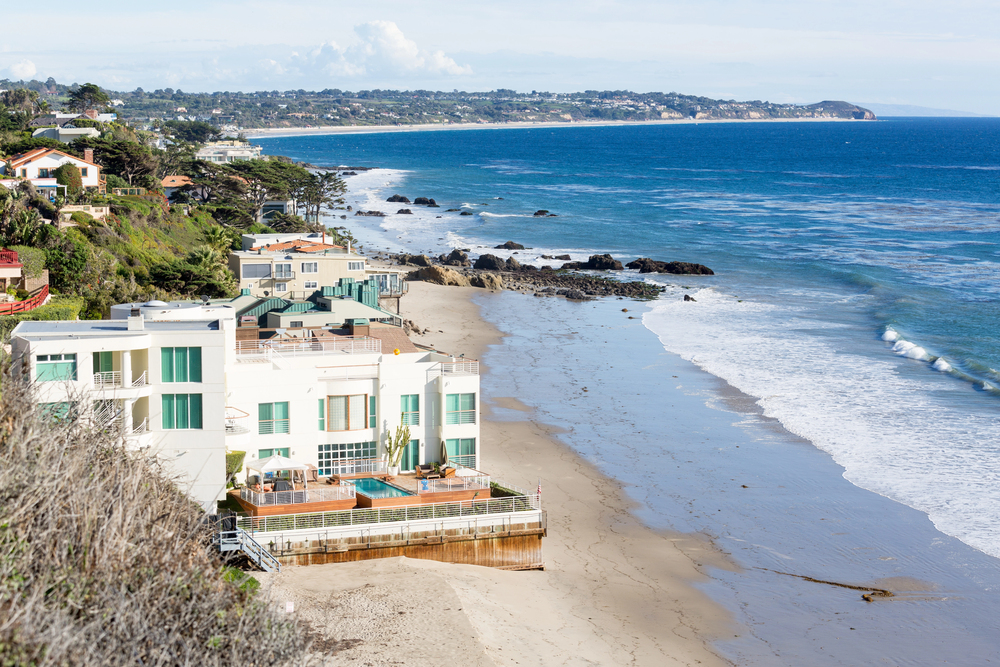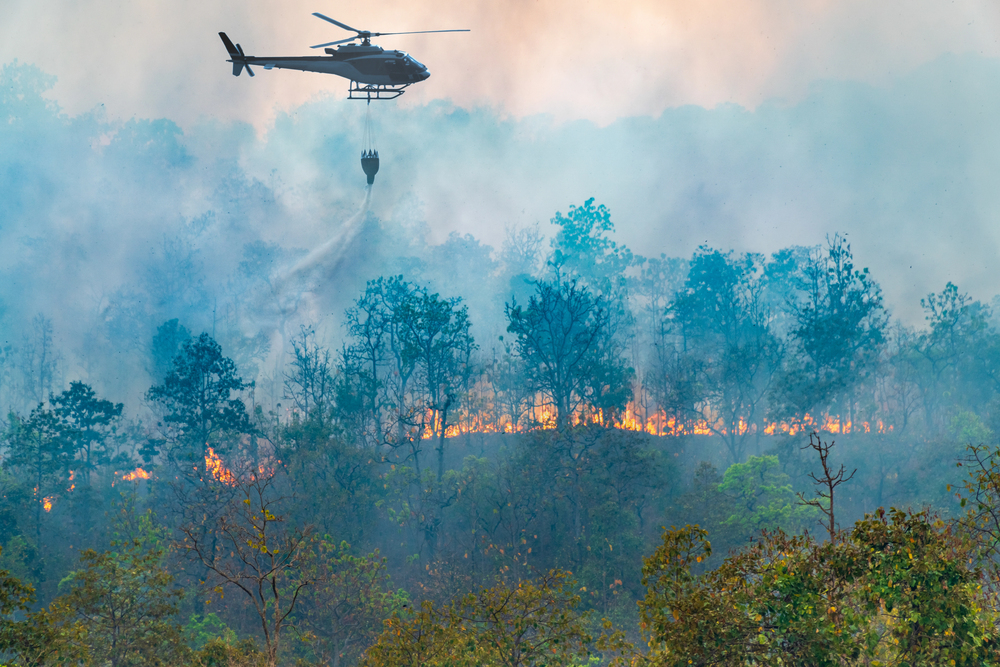Summer Vacations: 11 Travel Tips to Share with Your Clients

By: Jacquelyn Connelly
Nearly 67 million U.S. citizens traveled outside the country in 2016—marking an increase of more than 8% since the previous year, according to data from the National Travel and Tourism Office.
Considering that summer is one of the most popular times to travel, many of your clients likely have a vacation planned for the coming weeks. Are you doing everything you can to make sure they’re protected overseas?
The first step is encouraging them to purchase a travel insurance policy, which can provide coverage for trip cancellation, interruption and delay; lost, stolen or damaged baggage and personal belongings; emergency medical assistance, evacuation and repatriation; 24-hour assistance; and rental car coverage.
But don’t stop there. Educate them about their travel risks.
Last month, Chubb hosted a webinar in which H. Wesley Odom, Jr., president of The Ackerman Group LLC, shared the expertise he’s gained from a lifelong career working in the security industry—including 15 years at the CIA. In addition to purchasing a travel insurance policy, here are 10 more travel tips that will help your clients stay safe when they’re abroad this summer.
Take responsibility. “The first thing you have to do when you’re travelling is understand who’s in charge of your security when you travel, and of course that’s you,” Odom said. “I often ask people when I’m training them, ‘How many of you travel with a bodyguard?’ Very few hands go up. When it comes down to it, your security is your own personal responsibility.”
Avoid high-risk areas. This goes for geographical locations—Odom highlighted Mexico, northern South America, the southern Sahara and the Middle East as the most obvious regions to avoid—as well as local areas that are likely to attract terrorist attention.
When navigating airports, for example, consider that recent terrorist attacks all took place in spaces that are open to the public. “There’s no security protection there. You want to spend as little time as possible in the public area of the airport, because every moment you spend there—checking in or picking something up in the baggage claim area—you have increased your risk,” Odom explained.
Don’t freeze up. If you do find yourself in the crosshairs of a dangerous situation, act quickly. When Odom participated in an investigation of a recent terrorist attack in Europe, interviews with survivors revealed that “almost every one of them survived because when they heard the first gunshot or detonation, they immediately dropped to the ground and tried to take whatever cover they could,” he said. “Rule of thumb if you get caught in the middle of something: Drop immediately.”
Be a little mysterious. When filling out customs cards upon your arrival in a foreign country, keep it vague. “Don’t give away information about yourself,” Odom said. “It’ll ask you for your home address in the U.S.—when I’m traveling overseas, I rarely ever give my home address on those forms.”
Note that when you return to the U.S., including accurate, complete information on customs and immigration forms is extremely important, Odom said. But when you’re entering another country, “trying to stay anonymous and not call attention to yourself can go a long way,” he said. “You don’t need to put on that form, ‘I’m the senior executive president of one of the biggest corporations in the world.’”
Arrange transportation ahead of time. Odom said the most secure way to get into town from the airport is via a pre-arranged car with a driver. “If you’re being met at the airport by pre-arranged driver, don’t let them put your name on that sign, or anything that would indicate you’re an American,” he stressed. “It doesn’t matter what’s on the sign, as long as it does not identify you as a foreigner.”
If a private driver is too expensive or unavailable, a hotel van is your next best bet—“strength in numbers kind of a concept,” Odom said. If all else fails, a legitimate, registered airport taxi is fine, but avoid independent taxis—even if their drivers promise they’re cheaper.
And don’t rent a car if you can avoid it, especially in developing nations. “You don’t know the rules of the road, and you could get stopped by a corrupt officer,” Odom pointed out. “You wouldn’t have the slightest idea of how to handle that.”
Sweep your hotel room. Once you arrive at your accommodations, perform a security inspection. Check all the locks and chains on the door, as well as your room phone to make sure it works. Use the in-room safe at your own risk—Odom said you’re better off using the safe deposit box downstairs.
According to Odom, the principal risk at a hotel is fire, so be sure to check out the fire escape map. “Murphy’s Law—if there’s a fire, it’s going to happen at 2 a.m.,” Odom chuckled. “Know where you’re going, and be ready for that.”
Blend in. “Keeping a low profile is the thing that will keep you safest,” Odom advised. “Dress down. For heaven’s sakes, don’t wear U.S. flags on your t-shirt or otherwise advertise the fact that you’re an American when you go abroad.”
Odom also suggested leaving the flashy jewelry at home, as well as anything that might draw attention to wealth—expensive cameras, tablets and the like. “What kind of watch are you wearing? Anything that looks gold is going to attract attention from a street criminal,” he pointed out.
Remember the Willie Sutton rule. The principal risk for travelers isn’t kidnapping or terrorism—it’s street crime, said Odom, who brought up prolific bank robber Willie Sutton and his famous response when a journalist asked him why he robs banks: “That’s where the money is.”
“When you’re abroad, it’s not going to be where the poor people live where most of the crime occurs,” Odom explained. “The highest-crime areas are the resort destinations and major hotel and financial districts. Criminals go where the money is, and that happens to be where you are.”
Think like a thief. “Don’t put anything in your pockets you don’t want to lose,” warned Odom, who recommended investing in a concealed money belt you can wear underneath your clothes. “Before leaving the hotel, I ask myself, ‘Would I be willing to give this away today?’ If not, put it in the safe deposit box.”
When you’re out and about, “don’t stop to speak to strangers,” Odom said. “They don’t need the time and they don’t need a light. They’re trying to slow you down so they can work you. Walk with purpose. Act like this is your town.”
Ditch your pride. Whereas pickpockets work crowds and tend to partner up, “muggers work in isolation,” Odom said. “Stay on streets that are well traveled.”
The No. 1 rule to remember if you’re ever confronted by a mugger with a weapon? “Just give it up,” Odom said. “Would you be willing to die for an American Express card or $300 in cash? Make the decision before you leave the hotel that you’re not going to lose your life over anything you’re carrying in your pockets. People who have not done that process react inappropriately.”
Know before you go. Above all else, stay informed. “Every country has its own set of problems—political, economic, demonstrations going on in the street,” Odom said. “But you can travel safely almost everywhere in the world today if you think about what you’re doing.”
Jacquelyn Connelly is IA senior editor.










